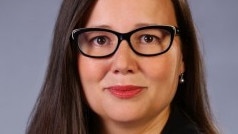No longer place for women in language
Victoria’s first openly gay female MP has welcomed moves in the UK parliament to refer to ‘pregnant persons’ instead of ‘pregnant women’.

Victoria’s first openly gay female MP has welcomed moves in the UK parliament to refer to “pregnant persons” instead of “pregnant women” in a bill concerning paid maternity leave for parliamentarians.
Harriet Shing, parliamentary secretary for equality, said by making inclusive changes to gendered terms, the beneficiaries, who often suffered discrimination and stigma, weren’t causing damage to anyone else.
“I do think it‘s really important to use inclusive language,” she said. “We do have people who are able to have babies who identify as male.’’
She said the move by British parliament was an “important signal to send” and didn’t harm anyone.
Australian Christian Lobby deputy director Dan Flynn said the bill had serious implications for children and families.
“This is a profound cultural change being smuggled into language,“ he said. “We only need to look at the epic rise in gender dysphoria in children to see that these changes are not cost free.”
The Australian National University’s Gender Institute published a guide last year on gender inclusivity including terms for student parents, advising a move away from “mothers” and “fathers” because they excluded parents who do not identify with gender binaries.
The guidebook also advised against “women-focused lactation language”.
“It is therefore recommended to use the terms “breast/chest feeding” and “human/parent’s milk”, rather than “breastfeeding” and “mother’s milk” to describe lactation,” it said.
“When discussing childbirth, use the terms “gestational” or “birthing” parent rather than “mother”, and the terms “nongestational” or “nonbirthing” parent rather than “father” … When working with student parents, defer to non-gendered language until the student volunteers their preferred nomenclature.”
The current Australian Nursing and Midwifery Federation breastfeeding policy says the practice “should be encouraged due to the real and measurable benefits to mothers and their babies”.
Melbourne’s Royal Women’s Hospital delivers maternity, gynaecology, women’s cancer, neonatal and fertility services to almost 80,000 patients each year.
The hospital did not comment on whether it would consider changing its gendered terminology.
The Australian Breastfeeding Association did not respond by The Australian’s deadline.



To join the conversation, please log in. Don't have an account? Register
Join the conversation, you are commenting as Logout